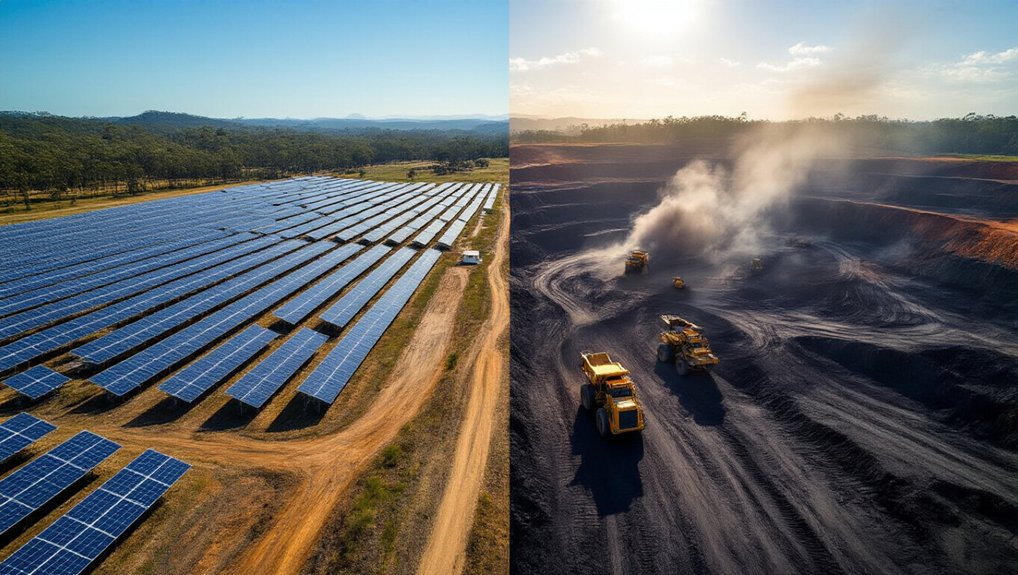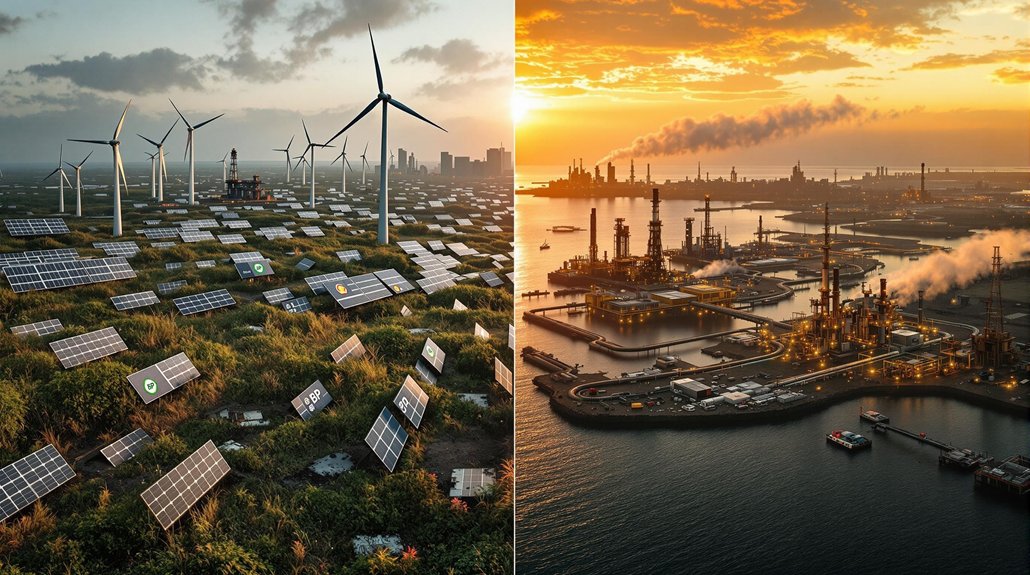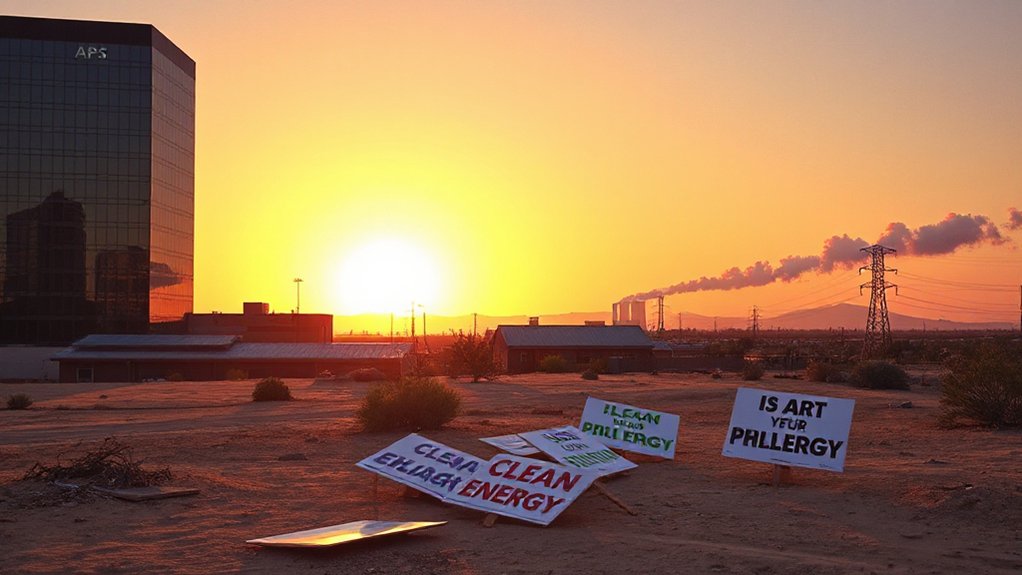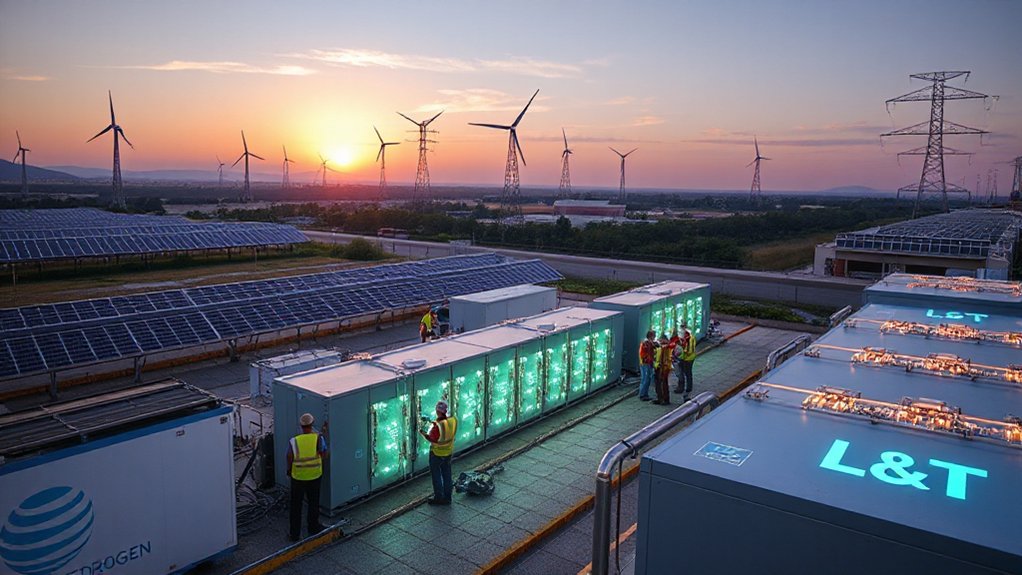While AustralianSuper loudly champions its commitment to net zero emissions by 2050, the superannuation giant’s investment portfolio tells a different story. The fund proudly boasts about its environmental credentials, targeting scope 1 and 2 emissions reductions across its holdings. Sounds impressive on paper. But actions speak louder than glossy sustainability reports.
The fund’s pledge aligns with limiting global warming to 1.5°C by 2100, supporting Australia’s national target of 43% emissions reduction by 2030. They’ve got the calculations down pat – tracking portfolio emissions based on ownership stakes, with data covering 97% of internally managed portfolios. Very thorough. Very responsible. Or so it seems.
What they don’t advertise as loudly is their continued investment in coal-related companies. It’s the elephant in the boardroom that nobody wants to acknowledge. Buy shares in coal while promising net zero? Make it make sense.
This contradiction hasn’t escaped notice. Advocacy groups have highlighted the gap between AustralianSuper’s lofty climate promises and its actual investment practices. Talk is cheap when you’re still bankrolling fossil fuels. This approach mirrors the chilling effect on climate science seen during previous administrations when fossil fuel interests dominated policy decisions.
The fund insists that ESG factors are integrated into investment decisions to generate better long-term outcomes. Climate change is specifically identified as one of their priority ESG issues with significant financial impact on investment returns. Members can choose a “screened” investment option that excludes certain assets based on ESG criteria. How thoughtful – making climate action optional.
To be fair, AustralianSuper does engage in stewardship activities including company engagement and voting. They participate in investor networks like Climate Action 100+. Their internal monitoring shows almost 90% of emissions in Australian shares portfolios are linked to companies with net zero commitments. They’ve got partnerships with advocacy groups. They talk the talk.
But critics argue these broad net zero statements lack sufficient short-term measures and accountability. It’s easy to promise something 30 years in the future when nobody will remember what you said today.
The pressure is mounting for tangible action to phase out fossil fuel investments. AustralianSuper’s members might be wondering: is my retirement being built on broken climate promises?
References
- https://www.australiansuper.com/investments/how-we-invest/climate-change
- https://www.australiansuper.com/investments/how-we-invest/esg-management
- https://igcc.org.au/new-research-australias-2025-state-of-net-zero-investment-report/
- https://netzeroinvestor.net/news-and-views/super-funds-down-under-have-responded-to-canberras-call-to-green-arms-some-more-aggressively-than-others
- https://www.shiftaction.ca/news/2025/5/27/pension-giants-remain-committed-to-net-zero









